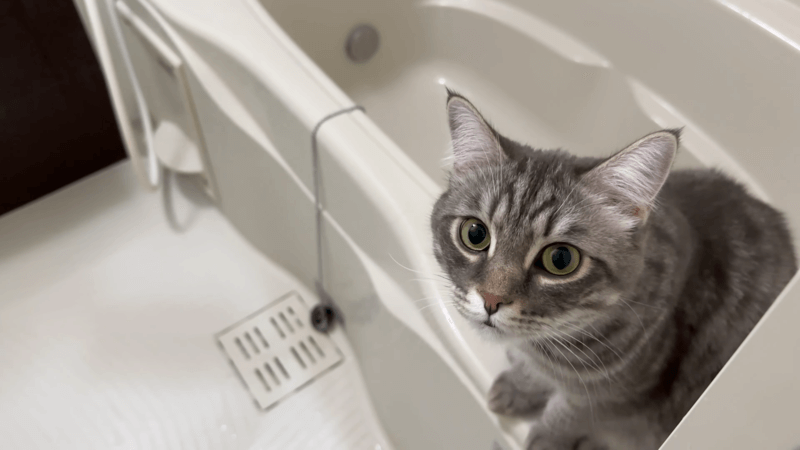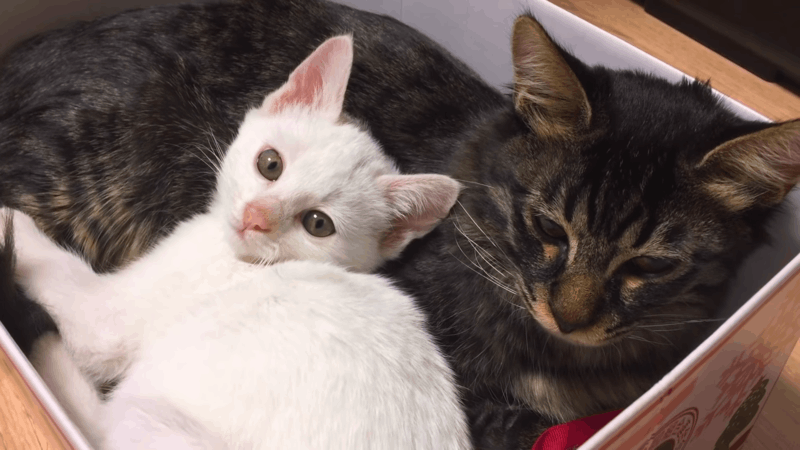No products in the cart.
As pet owners seek solutions to enhance the well-being of their aging feline companions, the question of how does CBD treat cat dementia has gained prominence. As our cats grow older, they can encounter cognitive challenges, and CBD from the cannabis or hemp plant has emerged as a potential remedy for cats.
In this blog, we will explore how does CBD treat cat dementia, can cats get dementia, what are signs of dementia in cats, and the pivotal role of early detection in providing the best care for our beloved senior cats.
How Does CBD Treat Cat Dementia?
CBD may potentially treat cat dementia through several mechanisms:
- Neuroprotection: CBD’s neuroprotective properties could help protect brain cells from damage and slow cognitive decline.
- Anti-Inflammatory: CBD’s anti-inflammatory effects may reduce brain inflammation, which is associated with cognitive dysfunction
- Anxiety Reduction: CBD’s calming properties may alleviate anxiety and stress in cats with dementia, improving their overall well-being.
- Improved Sleep: CBD may help cats with dementia sleep better, promoting cognitive function.
- Pain Management: While not directly related to dementia, CBD’s pain-relieving properties can enhance a cat’s comfort, benefiting their overall quality of life.
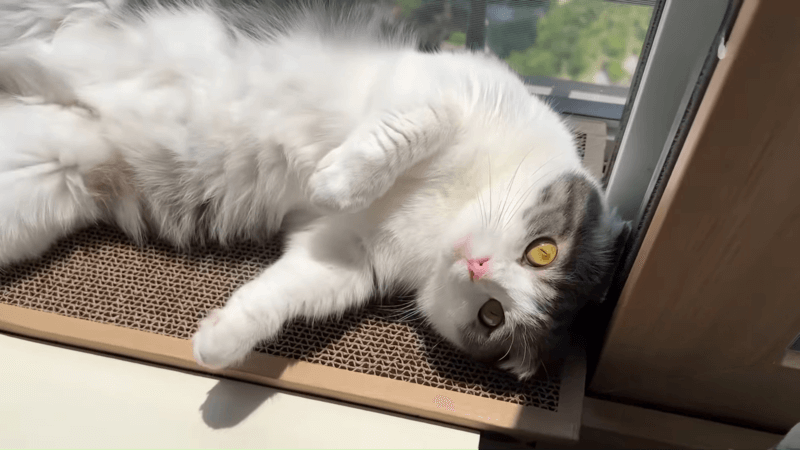
What Is CBD Oil for Cats?
CBD oil for cat is a natural compound derived from the hemp or cannabis plant. It is non-psychoactive, meaning it doesn’t produce a “high” like THC (another cannabis compound). CBD is available in various forms, including oils, treats, capsules, and creams. It’s used as a potential natural remedy to address various health issues in cats, including anxiety, pain, inflammation, and, as discussed, cognitive dysfunction or dementia.
Is CBD Safe for Cats With Dementia?
CBD can be safe for cats with dementia when used appropriately and under the guidance of a veterinarian. It’s crucial to choose high-quality CBD products designed specifically for pets and follow recommended dosage guidelines. While CBD is generally considered safe, individual cats may react differently, so it’s essential to monitor your cat closely for any adverse effects. Always consult with a veterinarian before starting any new treatment, including CBD, for your cat’s dementia, to ensure it’s the right option for your pet’s specific needs and condition.
Benefits of CBD for Kittens
The potential benefits of CBD for cat dementia may include:
- Neuroprotection: CBD’s neuroprotective properties could help slow cognitive decline.
- Anti-Inflammatory: CBD may reduce brain inflammation, which is associated with cognitive dysfunction.
- Anxiety Reduction: CBD’s calming properties may alleviate anxiety and stress in cats with dementia.
- Improved Sleep: CBD may promote better sleep, enhancing cognitive function.
- Pain Management: While not directly related to dementia, CBD’s pain-relieving properties can enhance a cat’s comfort, benefiting overall well-being.
Side Effects of CBD for Cats
Common side effects of CBD in cats can include:
- Drowsiness: CBD can cause relaxation and drowsiness in some cats, which may be beneficial for anxiety or sleep issues.
- Dry Mouth: Occasionally, CBD can reduce saliva production, leading to increased thirst in cats.
- Diarrhea: Although not common, some cats may experience diarrhea as a side effect of CBD. Discontinuing use and consulting a vet is recommended if this occurs.
- Changes in Appetite: CBD may affect a cat’s appetite, either increasing or decreasing it temporarily.
- Potential Drug Interactions: CBD can interact with certain medications, so it’s crucial to consult with a vet, especially if your cat is on other medications, to ensure safe co-administration.
Can Cats Get Dementia?
Yes, cats can develop a condition known as feline cognitive dysfunction, often referred to as cat dementia. It is a cognitive disorder that can affect aging cats, similar to how dementia affects humans. This condition can lead to various behavioral and cognitive changes in cats as they get older.
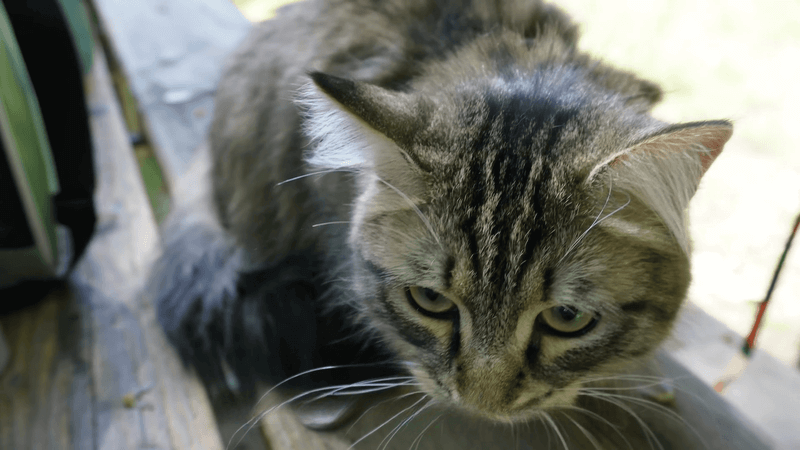
Definition of Cat Dementia (Feline Cognitive Dysfunction)
Feline cognitive dysfunction (FCD) is a neurological disorder in cats that is associated with cognitive decline as they age. It is characterized by changes in behavior, memory, and learning ability. FCD can significantly impact a cat’s quality of life, and early detection and intervention are essential for managing its progression.
Common Causes and Risk Factors
The exact causes of cat dementia are not fully understood, but several factors may contribute to its development. Common causes and risk factors include:
- Aging: Feline cognitive dysfunction is more common in older cats, typically those aged 10 years and older.
- Brain Changes: As cats age, they may experience physical changes in the brain, including the accumulation of abnormal proteins and oxidative stress, which can contribute to cognitive decline.
- Genetics: Genetic predisposition may play a role in some cases of FCD, especially in certain cat breeds.
- Chronic Health Conditions: Cats with chronic health issues such as hypertension, diabetes, or thyroid disorders may be at a higher risk of developing FCD.
- Environmental Factors: Environmental stressors, lack of mental stimulation, or changes in routine can contribute to cognitive decline.
- Diet and Nutrition: Poor diet and inadequate nutrition may impact brain health and increase the risk of FCD.
- Lifestyle and Exercise: Cats that are physically inactive and have limited mental stimulation may be more susceptible to cognitive dysfunction.
The Importance of Early Detection
Early detection of cat dementia (FCD) is crucial for several reasons:
- Quality of Life: Early intervention can help improve a cat’s quality of life by managing symptoms and slowing the progression of the disease.
- Safety: Cats with FCD may become disoriented and at risk of accidents or getting lost. Early detection allows for appropriate safety measures to be implemented.
- Treatment Options: Early diagnosis enables veterinarians to recommend treatment strategies, including medication, dietary changes, and environmental modifications, to manage the condition effectively.
- Emotional Well-being: Cats with FCD may experience anxiety and confusion. Early detection and intervention can help reduce their distress and maintain their emotional well-being.
- Supportive Care: Caregivers can provide better support and accommodations for cats with FCD when they are aware of the condition’s presence and progression.
What Are Signs of Dementia in Cats
Signs of dementia in cats, or feline cognitive dysfunction (FCD), can vary among individuals, but common indicators include:
- Disorientation: Cats with FCD may become easily confused and find themselves lost in familiar surroundings, such as their own home.
- Altered Sleep Patterns: Changes in their sleep-wake cycles are often observed, with some cats becoming more active at night and drowsier during the day.
- House Soiling: FCD can lead to forgetfulness regarding litter box training, causing cats to have accidents inside the house.
- Changes in Vocalization: Cats may exhibit increased meowing, yowling, or vocalization at odd times, which can be disruptive.
- Altered Social Interactions: Some cats with FCD become more withdrawn or irritable, potentially impacting their relationships with both humans and other pets in the household.
- Memory Loss: Forgetfulness is a hallmark sign, with cats sometimes forgetting meal times or becoming disoriented within their familiar home environment.
- Loss of Interest: Cats may lose interest in activities they previously enjoyed, such as playing or grooming, neglecting their usual routines.
- Repetitive Behaviors: Repetitive actions like pacing or excessive grooming can become more common.
- Agitation or Anxiety: Increased restlessness, anxiety, or fearfulness may also be observed in cats with FCD.
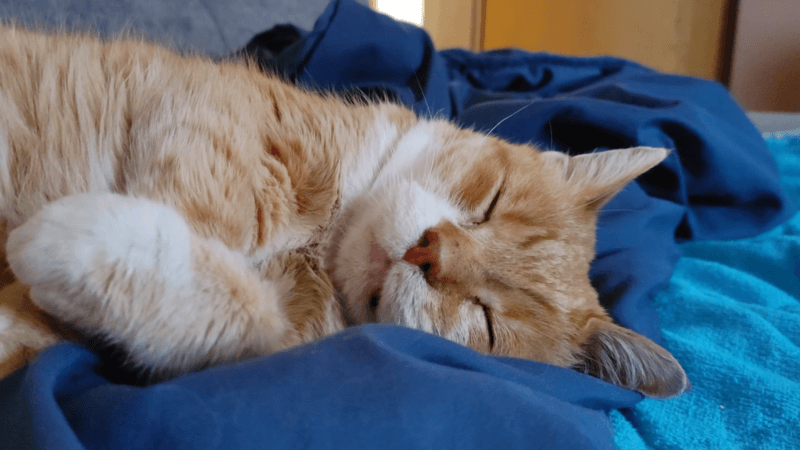
Common Behavioral Changes
Several behavioral changes are associated with feline dementia, including:
- Increased Vocalization: Cats may become more vocal, especially during nighttime hours, which can be disruptive to household members.
- Disorientation: Cats may appear confused and disoriented even within their familiar home environment, potentially leading to aimless wandering.
- House Soiling: Accidents outside the litter box can become more frequent as cats with dementia may forget their litter box training.
- Altered Sleeping Patterns: Cats may reverse their normal sleep patterns, sleeping more during the day and experiencing restlessness at night.
- Changes in Social Behavior: Some cats may lose interest in interacting with people or other pets, becoming less engaged and sociable.
- Appetite Changes: Dementia can affect a cat’s appetite, causing them to eat less or even forget to eat altogether.
- Irritability: Some cats may exhibit increased irritability, mood swings, or even aggression.
- Repetitive Behaviors: Repetitive actions like pacing, excessive grooming, or other repetitive movements may become more pronounced.
Differentiating Between Normal Aging and Dementia in Felines
It can be challenging to differentiate between normal aging and dementia in cats, as some degree of cognitive decline is expected with age. However, here are some key distinctions:
- Frequency and Severity: Dementia-related changes are typically more frequent and severe than typical age-related changes.
- Consistency: Dementia symptoms tend to be consistent or worsen over time, while age-related changes may remain relatively stable.
- Disorientation: Getting lost in familiar places and severe disorientation are more indicative of dementia than normal aging.
- House Soiling: Frequent and persistent house soiling is often a sign of dementia.
- Altered Sleep Patterns: Severe disruptions in sleep patterns, such as nighttime restlessness, can be a sign of dementia.
- Behavioral Changes: Sudden and significant behavioral changes, like increased aggression or constant meowing, are more likely to be associated with dementia.
Conclusion
In conclusion, when addressing the question of “How does CBD treat cat dementia?”, it’s clear that CBD offers potential benefits for managing this condition in aging feline companions. CBD may provide neuroprotection, reduce inflammation, alleviate anxiety, improve sleep patterns, and enhance pain management. However, cat owners should exercise caution, consult with a veterinarian, and closely monitor their pets when considering CBD as part of their dementia management plan.
I am Nelson Cooper, I pursue my passion for writing and my belief is that cats love humans. I enjoy traveling and have a deep appreciation for the beauty of nature, as well as a soft spot for animals, particularly cats.

